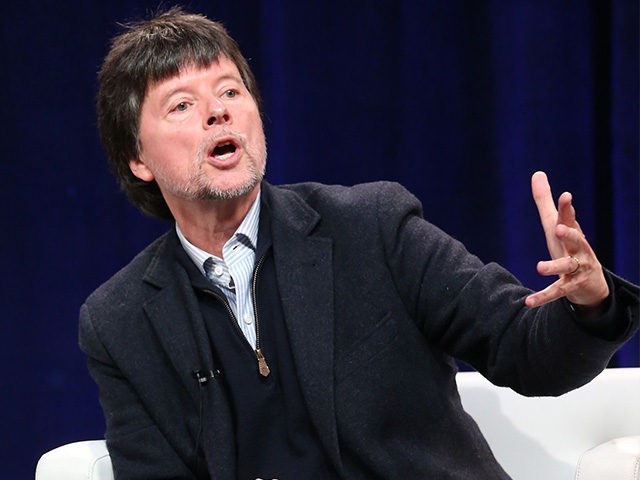Documentarian Ken Burns, whose documentary about Ernest Hemingway will air this Monday on PBS, threw his support behind the group Beyond Inclusion, which sent a letter to PBS accusing the network of lacking in racial diversity.
In February, PBS President and CEO Paula Kerger rejected a filmmaker’s argument that the network’s 40-year relationship with Ken Burns has come at the expense of diversity.
In a letter addressed to Kerger, Beyond Inclusion called out the CEO for saying she “respectfully disagrees” with the notion that the network has an “over-reliance on one white male filmmaker.”
“We are filmmakers, producers, directors, executives and programmers,” the group began in its letter. “We feel compelled to express our disappointment with your remarks which fail to acknowledge efforts across the field that not only diversify voices on major platforms, but also attempt to repair past injustices.”
Beyond Inclusion is a BIPOC-led group of creatives organizing “for a more racially just and equitable media landscape,” according to its website. The term “BIPOC” refers to “black, Indigenous, and people of color.”
“Using the example of three individual BIPOC filmmakers is an inadequate leadership response to a systemic failure to fulfill a mandate for a diversity of voices,” the letter continued. “When you program an 8-part series on Muhammad Ali by Ken Burns, what opportunity is there for a series or even a one-off film to be told by a Black storyteller who may have a decidedly different view?”
The group continued:
Your chief programming executive recently announced an initiative to fund “the next generation” of BIPOC makers but where does that leave the current generation? This is about equitable support for BIPOC filmmakers to author their own narratives at all stages of their careers that rival the access and support seen by their white peers.
“As the leader of the public broadcasting system, you are responsible to commit to an open and sustained public dialogue,” the group concluded in its letter. “Questioning whether PBS could be doing better should not be seen as an attack, but as an opportunity for meaningful dialogue and action, and to engage BIPOC filmmakers as we chart a course forward.”
Burns, who has a years long relationship with PBS, acknowledged Beyond Inclusion’s concerns, telling NBC News, “I wholeheartedly support the objectives of the letter writers.”
“I think this is hugely important, and one of the reasons we’ve been in public television has been a commitment to inclusion and diversity,” Burns added. “But can we do better? Of course we can. Can PBS do better? Of course they can.”
You can follow Alana Mastrangelo on Facebook and Twitter at @ARmastrangelo, on Parler @alana, and on Instagram.

COMMENTS
Please let us know if you're having issues with commenting.